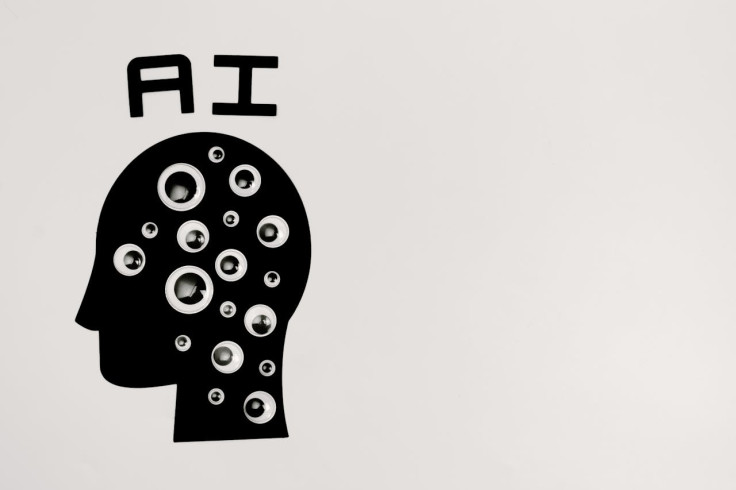
Undoubtedly, the most significant trend proliferating across all industry sectors is artificial intelligence (AI), compelling organizations to reconfigure certain elements of their strategy. As we reach Q2 of 2024, the situation becomes less dependent on whether or not corporations should integrate AI into their operations and more on how efficiently it can be implemented.
Personally, as one who has always maintained a strong people-first philosophy, it is vital to walk the tentative tightrope balancing the necessary progress and forward-thinking supplied by AI to the high-tech industry, with the certainty that AI, in and of itself, is a disruptive technology in relation to human capital. How does one remain focused on people-first thinking, while implementing technology which could potentially replace those same people?
Pivotal Role of Human Capital
Investing in human capital propels us toward a more prosperous future. The concept of human capital—the notion that an individual's competencies and characteristics enhance their productivity—has historical roots in Adam Smith, the progenitor of modern economics. In his seminal work, "The Wealth of Nations" (1776), Smith illuminated the pivotal role of education and training in driving economic expansion, albeit without coining the term "human capital," which gained popularity around the mid-20th century.
This idea that enhancing an individual's skills directly correlates with the efficacy of their work has evolved significantly over the centuries. Today, human capital—encompassing a worker's knowledge, skills, and abilities—is acknowledged as one of the quintessential assets within the business sphere. This recognition underscores the imperative for employers to recruit adept individuals and commit to their continuous professional development, thereby amplifying their competencies and contributions to the organization.
Transformative Power
My personal journey reflects a steadfast belief in the transformative power of human capital. From founding my first company during my electrical engineering studies to establishing the Institute for International Business Studies in collaboration with US universities, I have witnessed firsthand the wealth and success generated through such investments.
The valuation of the United Kingdom's human capital stock at £23.8 trillion in the 2021 census underscores the monumental economic impact of investing in education and professional development. The significant uptick in lifetime earnings and educational attainment within the population exemplifies the tangible benefits of such investments.
Promise of Peril
Artificial Intelligence (AI) stands at the forefront of transforming human capital within the corporate world, offering a dual-edged sword of promise and peril. Harnessing AI technologies can catalyze unprecedented productivity, efficiency, and innovation, sculpting a workforce primed for excellence.
Conversely, it also unfurls concerns pertaining to potential job displacement, skills deficits, and ethical quandaries. Nevertheless, businesses must gravitate towards accentuating the constructive impacts of AI on human capital, given its potential to engender multifaceted opportunities for advancement and enrichment.
Leadership's role is pivotal in identifying and nurturing the diverse talents within their teams, balancing technical competencies with essential soft skills. This balance is crucial for fostering a workforce that is technically proficient and excels in leadership, communication, problem-solving, and teamwork.
The concept of Human Capital Risk highlights the imperative for organizations to adeptly manage their human resources adeptly, aligning them with the organization's needs and aspirations, while maintaining necessary progress with technology. Companies that excel in this domain view the investment in human capital as pivotal to their growth strategy, akin to any other investment aimed at revenue generation.
A Bolster to Productivity
Research indicates that AI is a potent catalyst for augmenting human capabilities within the workplace. For instance, according to a study by ECIPE, AI-powered automation can bolster workforce productivity by a staggering 40% within a span of just a few years.
By seamlessly automating routine tasks and furnishing actionable insights derived from vast troves of data, AI empowers employees to redirect their focus towards strategic endeavors and creative pursuits. This augmentation engenders heightened efficiency and nurtures an environment conducive to innovation and growth.
AI possesses the transformative capacity to foster inclusivity and diversity within corporate ecosystems. Cognizant of the pernicious biases embedded within conventional hiring and talent management practices, algorithms strive to eliminate such disparities. A report by EY underscores this phenomenon, revealing that AI-driven recruitment processes have led to a 20% increase in the hiring of candidates from underrepresented demographics.
By leveraging data analytics to discern merit and proficiency objectively, these new technologies facilitate the cultivation of a workforce brimming with diverse perspectives and talents, thereby fortifying the bedrock of organizational innovation and resilience.
Foundational Building for the Future
Investing in human capital is not exclusively a moral or social imperative but a strategic one, foundational to building a more sophisticated, prosperous future. The insights of Adam Smith remain as relevant today as they were centuries ago, reminding us that the wealth of a nation is intrinsically linked to the capabilities of its people.
Within these well-educated, decision-making individuals, the potential for truly transformative economic growth lies. Simultaneously, the ability to adopt advanced AI technologies to improve employees' capabilities and incite productivity is a proverbial gold mine for potential success.
Businesses must remain cognizant of the attendant challenges posed by AI, particularly in terms of job displacement and the imperative for up-skilling and re-skilling initiatives. By embracing AI as a facilitator of human potential rather than a harbinger of obsolescence, businesses can chart a trajectory toward a future wherein human capital flourishes in tandem with technological advancement.
Darko Horvat is a serial entrepreneur and investor with over three decades of experience in international fund management and high-tech. His career has been characterized by multibillion-dollar transactions and a strong focus on human capital.







